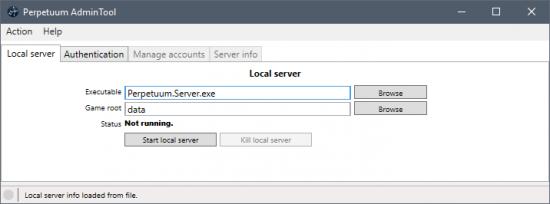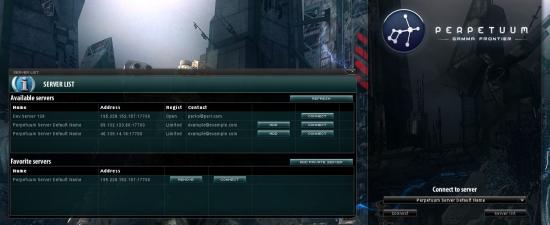So you haven’t heard from us in a long time, and the reason for that probably became more and more obvious with time: I’m sorry to inform you that Perpetuum is not actively developed anymore.
This blog is meant to inform you what this means for the game, for you, the players, and how the future of Perpetuum looks like. Because there is a future, at least we hope so.
How we got here
We knew from the start that Perpetuum will be a niche game and we were cool with it. But even considering that, it never really got off. We had two major spikes, the one during the EVE exodus, and after the Steam launch, but even those pale in comparison to what the we would have needed to justify the “massively” in MMORPG.
Over the years we’ve been in talks with numerous serious publishers and investors, but unfortunately none of those promises came to fruition. So the only thing we could do was to push it on our own and hope that steady work will eventually pay off and bring in a critical mass of players that would keep the game alive for a long time, and provide us a living.
The most prominent feedback that we have received over the years is that Perpetuum has great mechanics and atmosphere but lacks content, and that it is a great foundation for a game. Sadly we never got to the point where we could develop it to its full potential.
It was basically catch-22. After the initial spikes our playerbase always receded to unhealthy levels, which meant that we had to lay off some of our less essential content-related people and also that we didn’t have the funds to do any impactful marketing. Which in turn meant that we could bring in even less new players and develop less new content and do even less marketing. These cycles transformed into a downward spiral where the remaining developers had to be on minimum wage for years and the only thing we could do for the game was fixing bugs and recycling old content. If we would have found a publisher we would have been shut down probably years ago.
I joined Avatar Creations in 2006. After 10 years of “bringing up your own child” and making it part of your everyday life, it’s hard to call it. I can only speak about my own personal experience, but after such a long time of trying hard and failing, there comes a moment when you ask yourself “is it really worth it?” and “what am I doing with my life?”. So the remaining few of us made a mutual agreement that this is it, it’s time to let go.
We didn’t just want to simply let it die though, for two reasons. The first is a selfish one: if years from now someone asks what we have worked on for 10 years, we would like to be able to show them and say “it’s here, you can still play with it if you want”. In case of an MMO this is not self-evident.
The second reason is of course our players. However small it is, we still have a faithful community, and we love you all for that.
Your own Perpetuum server
So while the official server is still going to stay online for an undetermined time, in the last few months we’ve been working on a standalone server solution, in order to ensure the game’s future.
Although Perpetuum’s server application is far from being simple, our primary goal while developing the standalone server was simplicity and ease of use, while keeping the possibility of optional in-depth customization open.
The minimum requirements for running the server are lower than you might think: it can be run on the same Windows-based PC that you play Perpetuum on, even both at the same time. Resource usage of course goes up with the concurrent players on the server, so beyond a certain number a dedicated server machine is needed.
You’ll also need to have an SQL server installed for the database, but we got that covered. The Perpetuum server installer is a single exe about 1GB in size and includes the freely available Microsoft SQL Server 2016 Express that’s automatically installed and configured along with the Perpetuum server itself.
The installer also comes with an Admin Tool application, which is used to start/stop and configure the server, as well as provide a management interface for the player accounts on that server.
Server availability can be customized in the following of ways:
- Public server: the server will be publicly available and listed in the server browser, which will be visible both in the game client and on our website.
- Private server: the server will not be visible in the server browser; players will have to enter the server’s address manually in the game client.
- Open registration: anyone who connects to the server can create a new account and play.
- Limited registration: players need to request an account from server admins and only they can create player accounts.
As I mentioned above, initially our primary goal is to provide a working standalone server that anyone who has ever installed any application can set up, manage, and run with minimum hassle. Once we see that this works we can move on to the next phase where we provide documentation and know-how on how you can customize your server and the database, like doing your own balancing. Word of warning though: even our own management tools feel a lot of times quite hacky, the ways you’ll have to tinker with stuff will certainly require patience and at least some minimal knowledge on how databases work.
We still have to work out some kinks, but the standalone server installer will soon be made publicly available to download, for free of course.
Game client changes
The introduction of the standalone server will of course require support in the game client as well, while still retaining simple access to the official server.
It’s not a big change though: a new server selection screen will precede the current login screen. This includes a new server browser window where all the publicly available player-run servers are listed along with the official server, and you can select any number of them to be included in the server dropdown menu on the main screen. From there it’s as easy as clicking the connect button and after that it’s business as usual, just enter your credentials and play.
Becoming Steam-only
A bigger change that some of you probably won’t like is that soon Steam will be the only place where Perpetuum will be distributed, including the standalone server. The reason for this is to ensure the availability of the game on a stable platform, as opposed to our own website that we cannot guarantee to be around forever. Another reason is that it’s uneconomical for us to keep our own payment platform, as purchases made via Steam outweigh our own store by far.
It’s important to note that existing non-Steam (e-mail based) accounts will continue to work with the Steam-based Perpetuum client, but you won’t be able to create a non-Steam account after the change.
Perpetuum Credits and DLCs discontinued
On a standalone server Perpetuum Credits and DLC will make no sense, since we cannot sell and transfer them to a privately held server, and the administrators of the servers would be able to easily hack in as many credits or EP as they like.
So as of now, Perpetuum Credits, ICE, and Upgrade Kits (DLCs) are not available to purchase anymore, but existing assets are not removed of course and can still be used.
FAQ
In the rest of this blog I’ll try to collect any remaining info and questions you might have, and I will also update this section if any unanswered issue comes up in the comments or the forum.
What happens to the official server?
While the development of Perpetuum is discontinued, the game is not shutting down, and the official server will still stay online for an undetermined time.
How can I play Perpetuum in the future?
You will have the choice to either continue playing on the official server, or play on any of the player-run servers.
When will I be able to run my own Perpetuum server?
As soon as possible. Most of the development is done, but we’re still working on some details and bugs.
Can I play with my existing account/character on a private server?
This is something that we’re still looking into. What we know for sure is that we cannot give out any personal information included in Perpetuum accounts unless the account holder requests it, so simply copying the database is absolutely a no go. Another problem is that there are a lot of dependencies related to characters, so if we transfer a single account, there are going to be numerous problems if the character’s corporation, or the base/storage where its items are doesn’t exist on the new server… and those are just a few examples.
Can I sell Perpetuum Credits on my own server?
No, Perpetuum Credits are discontinued as server administrators could easily hack in as many credits as they like.
What happens to game features depending on Perpetuum Credits?
They will be either removed or changed to use other ingame currencies (like NIC) at a later time.
What prevents private server administrators to cheat on their own servers and give advantages to certain characters?
Technically nothing. Server administrators have full access to their server’s database and can do with it as they please, we can’t do anything to prevent this. This is something where the power of the community comes in, and we hope servers run by trusted players will develop a good reputation where you can be sure that everyone plays fair.
Will you still provide support for the game?
We are committed to fix any critical game-breaking bugs in the future that would prevent running the game at all. Anything beyond this, including new content, balancing, and individual player support (running the support ticket system) is not possible for us anymore.
Will I be able to do tweak balancing or add new ingame items on my own server?
To a certain extent, yes. It won’t be simple, and your possibilities will be quite limited, but we intend to come up with some documentation on what you can do and how you can do it.


